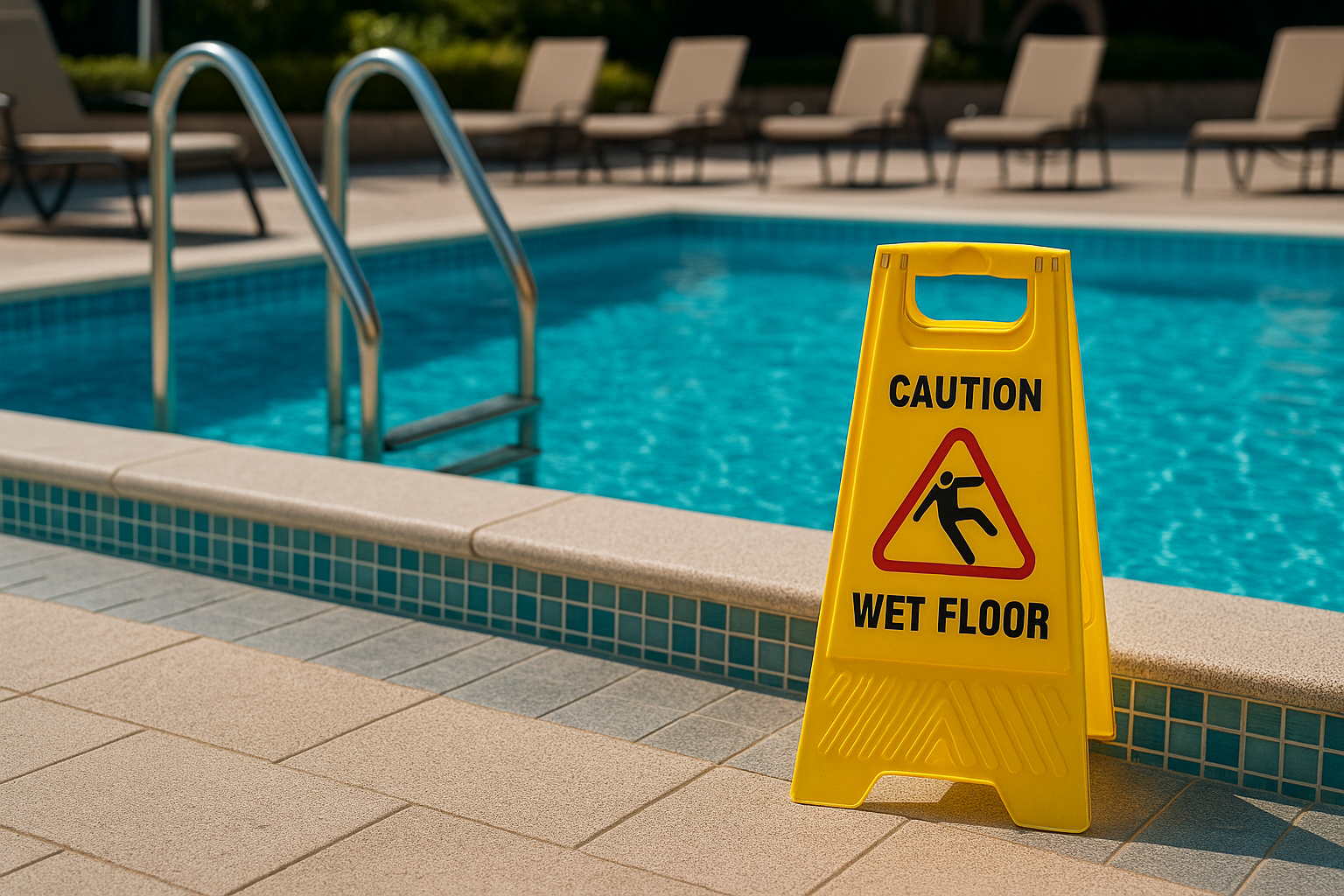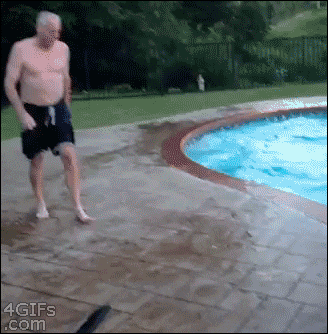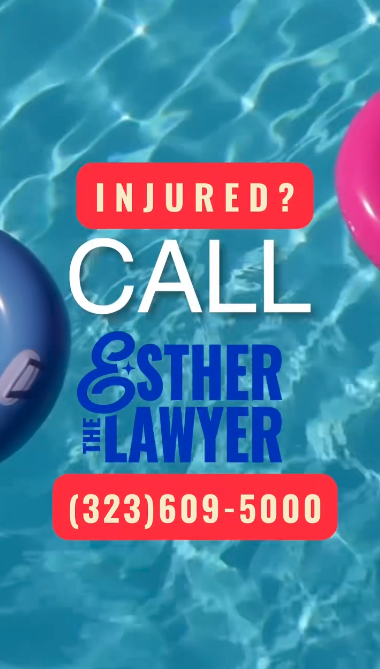
As the Southern California sun blazes and summer heat rolls in, there’s no better way to cool off than a dip in the pool. Whether you're lounging in your own backyard, visiting a friend’s apartment complex, or spending the day at a public facility, poolside fun is a major part of LA living. But what many people don’t realize is that pools also pose significant risks and when accidents happen, the legal aftermath can get complicated fast.
From slippery surfaces to poorly maintained facilities, poolside accidents can lead to serious injuries and costly medical bills. So, what happens when someone gets hurt? Who's responsible? And how can you protect yourself legally and physically?
Let’s break it down.
🏊♂️ The Reality of Poolside Injuries in Los Angeles
Los Angeles sees hundreds of pool-related injuries every year. The most common types include:
- Slips and falls on wet concrete or tile
- Drownings and near-drownings
- Diving injuries
- Chemical burns or respiratory issues from improperly balanced pool chemicals
- Injuries due to broken ladders, loose tiles, or unsafe drains
- Electrocution from faulty pool lighting or equipment
In many cases, these injuries are entirely preventable and when negligence is involved, legal liability becomes a serious factor.

⚖️ Who Can Be Held Liable in a Pool Accident?
In personal injury law, liability often hinges on the concept of negligence, meaning someone had a responsibility to maintain a safe environment and failed to do so. Depending on the circumstances, here’s who may be legally responsible:
1. Homeowners
If you’re injured at a private pool, say, at a friend's or neighbor’s house, the homeowner could be liable if they failed to maintain a safe space or didn’t warn guests of known hazards (like a broken step or a slippery deck).
In California, homeowners have a duty of care toward invited guests. If they fail to address known risks or take reasonable precautions, they may be held accountable for any injuries that occur.
2. Landlords and Property Managers
Property owners of apartment complexes, condos, and Airbnbs with pools are required to meet strict safety and maintenance standards. If someone is injured due to issues like poor lighting, missing fencing, broken tiles, or lack of warning signs, the owner or property manager may be held legally responsible.
Under California premises liability law, landlords have a responsibility to inspect and repair dangerous conditions, especially in common areas like pools.
3. Businesses and Hotels
Hotels, gyms, and recreation centers are considered public accommodations and are expected to uphold the highest standards of care. This includes proper supervision, clean and safe facilities, clear rules, and well-maintained equipment.
Failure to do so, whether it’s hiring untrained lifeguards or neglecting pool cleaning, could lead to a lawsuit.
4. Product Manufacturers
Sometimes the pool itself isn’t the problem, the equipment is. If a pool drain, diving board, or ladder was defectively designed or manufactured, you may have a case against the product maker under product liability law.
🤕 Common Injuries and Their Legal Implications
Some pool-related injuries might seem minor at first, like a twisted ankle or a bump on the head. But others can result in long-term damage or even permanent disability. Common serious injuries include:
- Traumatic brain injuries (TBIs) from diving accidents
- Spinal cord injuries
- Broken bones or dislocations
- Severe lacerations or abrasions
- Drowning-related brain damage due to oxygen deprivation
- Wrongful death
In legal terms, the more serious the injury, the higher the potential damages, especially when negligence is clearly involved.
What LA Residents Should Know About Pool Safety Laws
California Pool Safety Act (for Homeowners)
If you have a new or remodeled residential pool or spa, California law requires you to install at least two of the seven approved safety features, such as:
- Isolation fencing with self-latching gates
- Pool covers
- Alarms for doors and windows with pool access
- Alarms in the pool itself
Failure to comply with these regulations can make you more vulnerable to liability if an accident occurs.
LA County Rules for Public Pools
Public pools in Los Angeles must meet strict health and safety codes, including:
- On-duty lifeguards (depending on occupancy)
- Signage for depth, rules, and emergency procedures
- Slip-resistant surfaces
- Secure fencing
- Regular health inspections
If a public pool fails to meet these standards and someone gets hurt, legal action may follow.

What to Do After a Poolside Accident
If you or a loved one is injured at or around a pool, here’s what you should do immediately:
- Get Medical Attention – Even if injuries seem minor, documentation is critical.
- Report the Incident – If it’s at a business, gym, or rental property, notify management and get a copy of the report.
- Document the Scene – Take photos or videos of the hazard (wet surface, broken equipment, etc.)
- Get Witness Info – Names and contact info of anyone who saw the accident.
- Don’t Sign Anything – If an insurance rep tries to get you to settle, wait. Speak to Esther The Lawyer.
How a Personal Injury Lawyer Can Help
Poolside injury cases often require deep investigation and proving liability isn’t always straightforward. That’s where having an experienced personal injury attorney on your side can make all the difference.
At Estrada Law Group, we:
- Investigate the accident scene thoroughly
- Collect evidence like security footage, maintenance logs, and witness statements
- Work with medical experts to understand the full impact of your injuries
- Negotiate with property owners, insurance companies, and opposing counsel
- Take your case to court if necessary to fight for full compensation
And remember - we don’t get paid unless you win.
What Can You Be Compensated For?
If you’re injured due to someone else’s negligence, you may be entitled to compensation for:
- Medical expenses (past and future)
- Lost income or loss of earning potential
- Pain and suffering
- Emotional distress
- Permanent disability
- Wrongful death (if a loved one passed away due to a pool-related accident)
Final Thoughts for LA Residents
Whether you’re enjoying a summer BBQ in the Valley or relaxing poolside in West LA, remember this: with great weather comes great responsibility. If you own a pool, maintain it. If you’re visiting someone else’s, stay alert. And if something goes wrong, don’t assume it’s “just an accident.”
Poolside injuries can be serious, and you have rights under California law.

📞 Need Help After a Poolside Accident?
Don’t wait. Contact Esther The Lawyer and the team at Estrada Law Group for a free consultation today.
We’re bilingual, experienced, and committed to fighting for our community.
📞 Call today for a free consultation: +1 (323) 609-5000
📧 Email: info@estradalawgroup.com
📱 Follow us on Instagram & TikTok: @estherthelawyer | @estradalawgroup
____
Frequently Asked Questions About Poolside Accidents
Who is responsible if I get hurt at a friend’s pool?
Homeowners can be held liable under California premises liability law if they failed to maintain safe conditions or warn you of known hazards.
What if the accident happens at a hotel or gym?
Hotels, gyms, and public facilities have a higher duty of care. If negligence, like lack of supervision or poor maintenance caused your injury, the business can be held accountable.
Can I sue for a defective pool product?
Yes. If your injury was caused by a faulty pool drain, diving board, or other defective equipment, the manufacturer may be liable under product liability laws.
What should I do immediately after a pool accident?
Seek medical attention, report the incident, document the scene with photos and videos, and collect witness information. Do not sign anything until you speak with an attorney.
How long do I have to file a claim in California?
You generally have two years from the date of the accident, or six months if a government entity is involved. Act quickly to protect your rights.
Quick Legal Terms Explained
- Duty of Care: The legal responsibility to maintain a safe environment.
- Negligence: Failure to take reasonable precautions, leading to injury.
- Premises Liability: Law that holds property owners responsible for injuries caused by unsafe conditions.
- Damages: Financial compensation for medical bills, lost wages, and pain and suffering.
Quick Tip
If you or your child was injured at a pool, keep all medical bills and any communication from the property owner or insurance company. These documents are critical for your claim.
Heading 1
Heading 2
Heading 3
Heading 4
Heading 5
Heading 6
Lorem ipsum dolor sit amet, consectetur adipiscing elit, sed do eiusmod tempor incididunt ut labore et dolore magna aliqua. Ut enim ad minim veniam, quis nostrud exercitation ullamco laboris nisi ut aliquip ex ea commodo consequat. Duis aute irure dolor in reprehenderit in voluptate velit esse cillum dolore eu fugiat nulla pariatur.
Block quote
Ordered list
- Item 1
- Item 2
- Item 3
Unordered list
- Item A
- Item B
- Item C
Bold text
Emphasis
Superscript
Subscript



